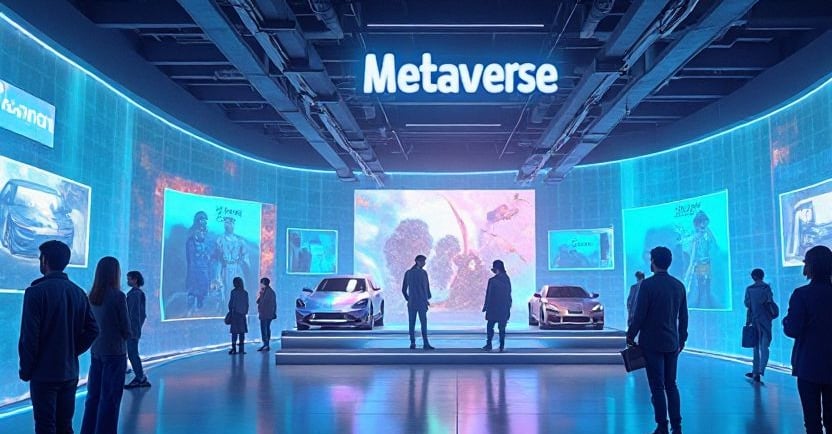Why Product Launches in the Metaverse Are the Future of Marketing
Discover why the Metaverse is revolutionizing product launches in 2025. Engage global audiences with immersive, interactive, and sustainable marketing.


Why Product Launches in the Metaverse Are the Future of Marketing
In today’s digital age, brands are always looking for new ways to create impactful experiences. Traditional product launches with stage events, banners, and media coverage are no longer enough. By 2025, the Metaverse is becoming the ultimate platform for companies to launch their products in a way that is interactive, immersive, and global.
1. Breaking Physical Barriers & Achieving Global Reach
In a physical launch, only a limited number of people can attend. But with the Metaverse, millions of people worldwide can join a product launch virtually, from their home or office, and still feel as if they are inside the event.
Brands can invite customers, media, and influencers from across the world. They can even design regional virtual spaces with different languages, making the event globally connected yet locally relevant. This accessibility is why the global Metaverse market is projected to reach over $936 billion by 2030.
2. Immersive Brand Experience with Unmatched Engagement
Instead of just watching a presentation, attendees can explore a 3D virtual showroom, test products digitally, and interact with avatars of brand representatives. For example, a car company like Hyundai can let users “sit inside” a new model and even take a virtual test drive before it hits the showroom.
The key benefit? Metaverse brand campaigns see up to 60% higher interaction rates compared to traditional digital campaigns, turning passive viewers into active participants. This level of engagement builds far stronger brand loyalty.
3. Cost-Effective, Sustainable, and Data-Rich
A Metaverse launch significantly reduces costs of travel, logistics, and venue setup. It also supports eco-friendly marketing since there’s less need for physical materials and energy consumption from huge events.
Furthermore, virtual platforms offer advanced analytics, giving businesses data on:
Duration of stay in the event space.
Popular activities and interactions.
Real-time user feedback.
This data allows for hyper-personalized follow-up marketing.
4. The Future of Marketing is Now
By 2025, companies across tech, fashion, automotive, and entertainment are already making their move. Luxury brands like Gucci, Nike, and Louis Vuitton have leveraged the Metaverse for exclusive product drops and experiences, recognizing that this is where the next generation of consumers spends their time.
The trend is set to dominate the future because it combines experience, reach, and innovation. Businesses that adapt early by working with and experts will gain a huge competitive advantage.
Conclusion
The Metaverse is not just a buzzword—it’s the future of customer engagement. For businesses, launching products in the Metaverse is no longer optional but a smart move to stay ahead of the competition and achieve higher engagement and reach.
Would you like me to now take the core concepts of this Metaverse post and draft a similar, high-impact piece for the Hospitality Sector?
